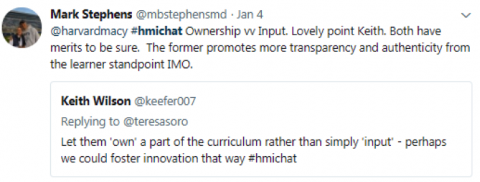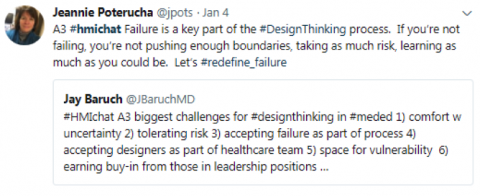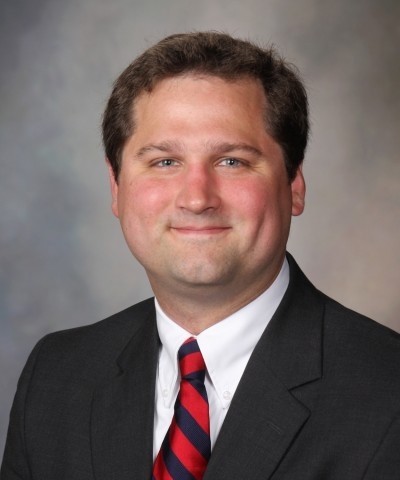Authors: HMI Chat team
This #HMIchat moderated by Jeff Wong (@jwonguprcmeded) and Mark Stephens (@mbstephensmd), from Penn State Hershey (@PennStHershey), in January 2018 focused on #DesignThinking in medical education (#MedEd) and health professions education (#HPE). This topic especially hit home with the HMI Chat team (@teresasoro @kreutermd and me (@erhall1)) given #DesignThinking is grounded in “abductive logic” which facilitates a growth mindset of “what might be” rather than “what might have been.” The @HarvardMacy #HMIChat community wholeheartedly embraces a “what might be” approach and imagines the possibilities as we wrestle with hot topics in medical education with subject matter experts and international colleagues.
So how better to reflect on the a chat about #DesignThinking then using the key concepts of design thinking highlighted in the #HMIChat?
As stated by @TChanMD,

It is through listening, learning, and the #HMIChat community was able to understand (discover, define, and interpret) #DesignThinking: .




to move the discussion to focusing on possibilities and creating ideas:

which fosters a community with a mindset driven by innovation, creativity, and curiosity:

and a culture in which failure is invited:

With the end result greater than the sum of its parts:

why not utilize #DesignThinking as a “secret sauce” in #MedEd and #HPE:

Thank you @HarvardMacy #HMIchat colleagues for engaging and advancing #MedEd & #HPE. It is truly our honor and a privilege. If you want to know more about how Penn State College of Medicine is using #DesignThinking to design a whole new way of health professions education, check out this earlier blogpost at: https://harvardmacy.org/blog/design-thinking-medical-education
Do you want to learn more about Design Thinking?
Our Leading Innovations in Health Care & Education Course can assist you! https://harvardmacy.org/courses/leaders
ABOUT THE AUTHORS:

Justin Kreuter, MD is a Clinical Pathologist with subspecialized practice in Transfusion Medicine and Tissue Typing (i.e., organ transplant compatibility) at Mayo Clinic. He primarily teaches with the flipped classroom approach in several graduate medical education and allied health programs. A “newbie” to education scholarship, he has developing interests in teaching clinical judgement, frameworks for feedback, and reflection in medical practice. His main clinical interest is transfusion support for acquired coagulopathies. In his free time, Justin enjoys playing the bass guitar and painting with his daughters.

Elissa Hall, EdD (ABD) is the Associate Director of Curriculum and Education Technology in the Office of Applied Scholarship and Education Science at Mayo Clinic. In her role, she engages and facilitates strategic planning for, systematically design of and implementation of enterprise-wide education initiatives aligned with curriculum, assessments, education technology, and digital pedagogy. Elissa, as a faculty developer, coaches medical educators and leads medical education research and scholarship. Elissa enjoys outdoor activities, running, and collaborating with her national medical education colleagues (#hmieducators, #thecgea, @GeneralistMedEd).

Teresa Sörö, MSc is a Pediatric Specialist Nurse. She is a strategic education developer at Medical Case Centre (MCC) at Karolinska Institutet (KI) and responsible for MCC’s educational programmes. Teresa has considerable experience in implementation of interactive learning, with a background in case based learning. She works with traditional courses as well as digital learning strategies in learning platforms and social media. Her work is mainly within faculty development at KI and residency programmes at the Karolinska University Hospital and she hosts the podcast MedEdTalk on medical education. In her spare time Teresa loves photography, skiing and to enjoy a glass champagne with friends and family.
#hmichat
#hmichat has not set their biography yet

